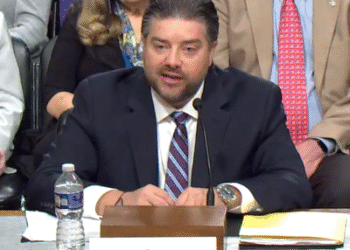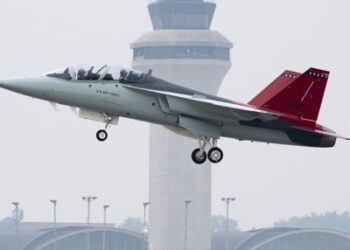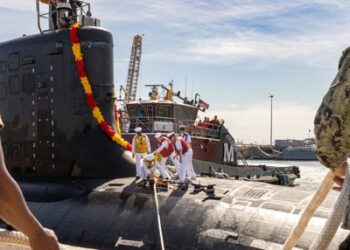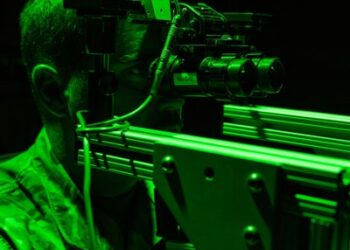Anduril’s robot wingman successfully achieved its first flight on Friday, more than a month after facing delays attributed to software issues and an initiative to develop a semi-autonomous flight capability. The takeoff occurred at a testing site in California, as confirmed by the Air Force in an emailed news release. This prototype is part of the service’s combat collaborative combat aircraft (CCA) competition and has now joined General Atomics’ prototype in transitioning from concept to first flight within a two-year timeframe.
In a statement, Air Force Secretary Troy Meink remarked, “This milestone demonstrates how competition drives innovation and accelerates delivery. These flights are giving us the hard data we need to shape requirements, reduce risk, and ensure the CCA program delivers combat capability on a pace and scale that keeps us ahead of the threat.”
General Atomics had previously announced a successful first flight in late August. Following that, Anduril executives indicated in September their desire to ensure their first drone wingman flight test was semi-autonomous, attributing the delay to software challenges. The company confirmed that Friday’s inaugural flight was indeed semi-autonomous and they developed the software used for the CCA.
In contrast, General Atomics’ YFQ-44A drone wingman flight from August was not conducted in a semi-autonomous manner. According to an Anduril news release, “YFQ-44A was not designed to be a remotely-piloted aircraft, and that is not how we are operating it — from first flight and forever onward. All of our taxi and flight tests have been and will continue to be semi-autonomous. This is a new age of air power; there is no operator with a stick and throttle flying the aircraft behind the scenes.”
C. Mark Brinkley, a spokesperson for General Atomics, congratulated Anduril on its achievement, stating that the aviation community is small and maintaining positive professional relationships is important. He expressed his happiness with the competitive progress in the Air Force CCA program, saying, “It’s been a great week for the Air Force CCA program. Congratulations all around.”
The Air Force is set to award the competitive first increment production design in 2026. Meanwhile, last month, Lockheed Martin announced its intention to have a CCA candidate prepared for flight by 2027, potentially entering future competitions. Additionally, Boeing revealed earlier this month its plans to develop a tiltrotor drone wingman intended to support the Army’s helicopter fleet.













